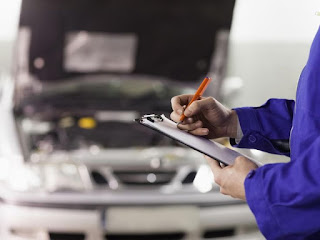The importance of a preventive maintenance program
If the cost of a preventive maintenance program worries you, consider the cost of not having one.
Vehicles that don’t receive regular maintenance experience a greatly reduced lifespan, excessive breakdowns, expensive repairs, lost time on the road and even litigation due to negligence.
In fact, in many ways, a preventive maintenance program for semi-trucks and commercial vehicles is as important as driver safety programs. An unsafe vehicle that is determined to create unreasonable risk or harm to a driver or others on the road – such as an accident because of bad brakes – could get the owner/manager prosecuted for liability or a negligent act.
In order to avoid any of these costly and scary issues it’s important to ensure your vehicle(s) is as safe as possible with consistent servicing, inspections and repairs to prevent problems and maximize the
vehicle’s availability.
Preventive maintenance is about being proactive and regularly scheduling proper maintenance based on time, mileage, engine hours or gallons of fuel used. These maintenance actions include vehicle inspections, lubrication, adjustments, cleaning, testing, repair and worn parts department.
Take Responsibility
Unscheduled and reactive maintenance to breakdowns and other problems is often a direct result of not being proactive and results in costly repairs and downtime for vehicles.
Whether you use an in-house, certified mechanic or take your vehicles to one, you should develop a
consistent and effective preventive maintenance plan.
First, create a checklist of everything that should be performed.
Second, for each item make sure you know how frequent (based on mileage) each task needs performed or parts need changed.
Third, make sure you develop a good record-keeping system, which can be manual or electronic, to evaluate your plan.
The Checklist
Before you develop your checklist and routine, make sure you consult the vehicle manual for manufacturer’s recommendations. From there, develop a preventive maintenance checklist that includes at least the following components inspection:
Engine oil and filter changes
Transmission fluid
Fuel system
Cooling system
Engine and transmission mounts
Drive shafts or CV joints
Belts and hoses
Tune-ups
Electrical system components
Braking system
Steering and suspension system
Tires, wheels, rims
Exhaust system
Exterior and interior lights
Windshield wiper system
The horn
Seatbelts and seats
Checks fluid leaks and the auxiliary systems.
Also, it’s important to get the mechanic or fleet owner/operator to speak with the driver to see if there are any problems they’ve noticed while on the road. This allows the mechanic to pinpoint any issues that may not be immediately visible.
Once you’ve come up with a checklist and began to implement your preventive maintenance schedule, keep an eye on costs to see the value of your plan. Detailed, regular reports on your preventive maintenance will help you keep track of how your efforts are working and how they can be improved as time goes on.
And If you don’t have a preventive maintenance plan, it’s one of the best things you can do as an
owner-operator or fleet manager. At Ogden Truck Trailer & Auto Repair, we’re not only experts at creating such plans but our certified mechanics will make sure your trucks and trailers run efficiently on every trip you make. Call us today at 403-265-1569 or stop by at 3812 16 Street SE Calgary, AB T2G 3R7.
Vehicles that don’t receive regular maintenance experience a greatly reduced lifespan, excessive breakdowns, expensive repairs, lost time on the road and even litigation due to negligence.
In fact, in many ways, a preventive maintenance program for semi-trucks and commercial vehicles is as important as driver safety programs. An unsafe vehicle that is determined to create unreasonable risk or harm to a driver or others on the road – such as an accident because of bad brakes – could get the owner/manager prosecuted for liability or a negligent act.
In order to avoid any of these costly and scary issues it’s important to ensure your vehicle(s) is as safe as possible with consistent servicing, inspections and repairs to prevent problems and maximize the
vehicle’s availability.
Preventive maintenance is about being proactive and regularly scheduling proper maintenance based on time, mileage, engine hours or gallons of fuel used. These maintenance actions include vehicle inspections, lubrication, adjustments, cleaning, testing, repair and worn parts department.
Take Responsibility
Unscheduled and reactive maintenance to breakdowns and other problems is often a direct result of not being proactive and results in costly repairs and downtime for vehicles.
Whether you use an in-house, certified mechanic or take your vehicles to one, you should develop a
consistent and effective preventive maintenance plan.
First, create a checklist of everything that should be performed.
Second, for each item make sure you know how frequent (based on mileage) each task needs performed or parts need changed.
Third, make sure you develop a good record-keeping system, which can be manual or electronic, to evaluate your plan.
The Checklist
Before you develop your checklist and routine, make sure you consult the vehicle manual for manufacturer’s recommendations. From there, develop a preventive maintenance checklist that includes at least the following components inspection:
Engine oil and filter changes
Transmission fluid
Fuel system
Cooling system
Engine and transmission mounts
Drive shafts or CV joints
Belts and hoses
Tune-ups
Electrical system components
Braking system
Steering and suspension system
Tires, wheels, rims
Exhaust system
Exterior and interior lights
Windshield wiper system
The horn
Seatbelts and seats
Checks fluid leaks and the auxiliary systems.
Also, it’s important to get the mechanic or fleet owner/operator to speak with the driver to see if there are any problems they’ve noticed while on the road. This allows the mechanic to pinpoint any issues that may not be immediately visible.
Once you’ve come up with a checklist and began to implement your preventive maintenance schedule, keep an eye on costs to see the value of your plan. Detailed, regular reports on your preventive maintenance will help you keep track of how your efforts are working and how they can be improved as time goes on.
And If you don’t have a preventive maintenance plan, it’s one of the best things you can do as an
owner-operator or fleet manager. At Ogden Truck Trailer & Auto Repair, we’re not only experts at creating such plans but our certified mechanics will make sure your trucks and trailers run efficiently on every trip you make. Call us today at 403-265-1569 or stop by at 3812 16 Street SE Calgary, AB T2G 3R7.




Comments
Post a Comment